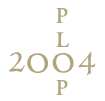The 11th Conference on Pattern Languages of Programs (PLoP2004)
September 8 - 12, 2004, Allterton Park, Monticello, Illinois![]()
|
Focus Group on Mastering Universal Transaction Management Systems (UTMS) with Software Patterns Dr. Mohamed E. Fayad Ram Goverdhana As more services are offered across wide range of enterprises, the ability to manage and execute these services can become complex and expensive. In the recent years, the notation of software patterns has received attention, to improve the overall processes involved in developing and utilizing software services that span across various systems. In this group we would explore the concept of applying the software stability patterns and modeling within the context of transaction processing. This is to maximize the reusability and achieve stability while processing any type of transactions within any domain. Transactions play a fundamental role in the existence and execution of services across various domains. As a result, we would need to focus on how the transaction processing is achieved to meet the needs of any given system. This would involve processing various types of data such as structured, semi-structured, or unstructured data based on the transactional service. With the current systems, the overall management of transaction is limited to a specific set of rules. E.g. traditional database transactions comply with the ACID rules. However, these rules do not fit well with the emerging process of managing business specific transactions, based on the specific set of software requirements. We would need to study the transactions from the aspect of developing and utilizing patterns for meeting the requirements across an enterprise. The collection of Transaction patterns presented by Mark Grand few years ago are limited in scope and the applicability. The focus group is to discuss the problem of achieving a stable system through the utilization and extensibility of the UTMS model and discuss the best approach of developing a Pattern Language for UTMS. The components within the system would be based on the concept of building Analysis and Design patterns. E.g. patterns such as Coordination, Compensation, and Commitment that can exist across domains. The questions that would need to be addressed are as follows: What are the critical software patterns that can be developed and utilized for any transactions along with their limitations, if any? E.g. in the context of achieving Backup/Recovery, Concurrency, Query Optimization .etc? What are the techniques to ensure that the above patterns built-into the UTMS model, to satisfy all the system requirements, as a whole, and to adapt to new emerging conceptual requirements? What are the implementation and integration issues at various levels of patterns utilization, E.g. Application/System developments? How is the best approach for developing a pattern language for UTMS? What is the impact of software patterns on the transactional on the software requirements, which can be directly modeled and incorporated, based on UTMS model? Can the requirements be perceived as a set of services (patterns) within an enterprise? What is the list of pointers for UTMS patterns, such as websites, books, articles? Participants This focus group aims to discuss the best approach to develop a pattern language for UTMS and debate several issues related to software patterns that can be researched within the concept of transactions management. We would welcome patterns experts and researchers, people with focus on transaction management, and database system developers. There is no limitation on the number of the participants to this focus group. Participants are encouraged to submit a position paper (no longer than five pages in PDF format). Papers will be reviewed and will be made available on the focus group web page in advance of the conference. Papers should be submitted to ramg108@yahoo.com. The focus group website will also contains references to the existing work in patterns for UTMS. Focus Group FORMAT Participants are expected to read all position papers before the focus group takes place. The focus group will consist of an invited talk and single-track presentation sessions. The plan is to have no more than half the time devoted to presentations and the other half to discussion and brainstorming new ideas and solutions. The results of this discussion will be documented into a final report. The theme of the sessions will be determined based on the position statements. While not all accepted position statements are expected to be presented, they will be available on the web before the conference. A summary report on the focus group will also be posted on the web. Back to Focus Groups
|
PLoP is a trademark of The Hillside Group, Inc.
